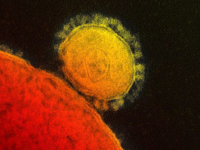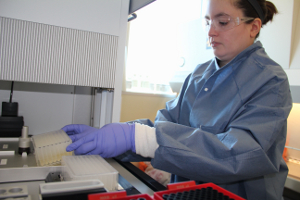Clinical evaluation of suspected MERS cases
 Middle East Respiratory
Syndrome (MERS) is viral respiratory illness first reported in Saudi Arabia in 2012. It is
caused by a coronavirus called MERS-CoV. Most people who have been confirmed to have
MERS-CoV infection developed severe acute respiratory illness. They had fever, cough, and
shortness of breath. About 30 percent of these people died.
Middle East Respiratory
Syndrome (MERS) is viral respiratory illness first reported in Saudi Arabia in 2012. It is
caused by a coronavirus called MERS-CoV. Most people who have been confirmed to have
MERS-CoV infection developed severe acute respiratory illness. They had fever, cough, and
shortness of breath. About 30 percent of these people died.So far, all the cases have been linked to four countries in or near the Arabian Peninsula. On May 2, 2014, the CDC announced that the first case of MERS was identified in the U.S. This virus has spread from ill people to others through close contact. However, the virus has not shown to spread in a sustained way in communities. The situation is still evolving. See the Centers for Disease Control and Prevention for more information.
Evaluation of Patients and Suspected Cases
Testing must be approved by IDPH before sending specimens to SHL.
Clinicians and health care professionals should immediately report patients with suspect MERS-CoV infection to the Iowa Department of Public Health (IDPH) at 800-362-2736. Testing at the State Hygienic Laboratory (SHL) will be arranged if indicated.
Guidance from the Centers for Disease Control and Prevention
- A patient under investigation (PUI) is a person with the following characteristics:
- fever (≥38°C, 100.4°F) and pneumonia or acute respiratory distress syndrome (based on clinical or radiological evidence); AND EITHER
- history of travel from countries in or near the Arabian Peninsula1 within 14 days before symptom onset; OR
- close contact with a symptomatic traveler who developed fever and acute respiratory illness (not necessarily pneumonia) within 14 days after traveling from countries in or near the Arabian Peninsula; OR
- is a member of a cluster of patients with severe acute respiratory illness (e.g. fever and pneumonia requiring hospitalization) of unknown etiology in which MERS-CoV is being evaluated, in consultation with state and local health departments.
If testing is approved by IDPH:
Specimen Collection – Contact SHL prior to collection for full instructions 319-335-4500.
To order “Viral Detection and Viral and Bacterial PCR” collection kits and test request forms contact SHL at 319-335-4500 or fill out the Order Clinical Kits Form.
If testing is approved by IDPH, please fill out the “Viral Detection and Viral and Bacterial PCR” test request form and write in “MERS-CoV approved by IDPH” for test requested.
The Food and Drug Administration has allowed use of the use of the "CDC Novel Coronavirus 2012 Real-time RT-PCR Assay" under an Emergency Use Authorization.
- This test has not been FDA cleared or approved;
- This test has been authorized by FDA under an Emergency Use Authorization for use by qualified laboratories;
- This test has been authorized only for the detection of MERS-CoV and not for any other viruses or pathogens; and
- This test is only authorized for the duration of the declaration that circumstances exist justifying the authorization of the emergency use of in vitro diagnostics for detection of MERS-CoV under section 564(b)(1) of the Act, 21 U.S.C. § 360bbb-3(b)(1).
More information including fact sheets for patients and physicians can be found at the FDA.
Footnotes
- Close contact is defined as a) any person who provided care for the patient, including a healthcare worker or family member, or had similarly close physical contact; or b) any person who stayed at the same place (e.g. lived with, visited) as the patient while the patient was ill.
- Countries considered in or near the Arabian Peninsula include: Bahrain, Iraq, Iran, Israel, Jordan, Kuwait, Lebanon, Oman, Palestinian territories, Qatar, Saudi Arabia, Syria, the United Arab Emirates (UAE), and Yemen.



